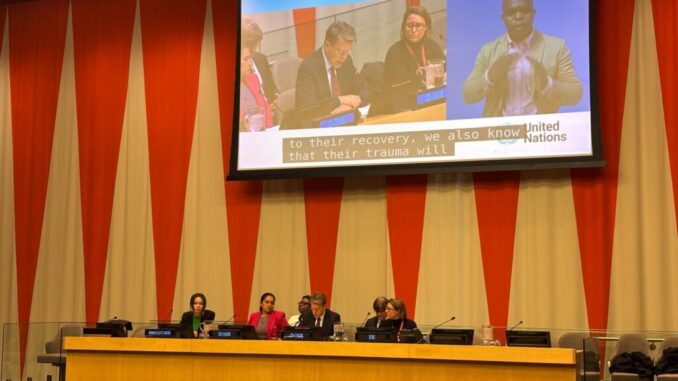
Guyana call for protection of persons with disabilities in armed conflict
Slovenia and Guyana have jointly called for stronger international efforts to protect persons with disabilities during armed conflicts. The appeal underscores the disproportionate vulnerabilities faced by individuals with disabilities in warzones and highlights the need for inclusive humanitarian frameworks.

During a recent session at the United Nations or a related international forum, both nations emphasized the urgent need for concrete action. Slovenia, known for its robust advocacy on human rights, and Guyana, with its growing emphasis on inclusive development, stated that persons with disabilities often face compounded risks in conflict situations. These include difficulties accessing humanitarian aid, limited mobility in evacuation scenarios, and exposure to targeted violence and discrimination.
Their call aligns with Article 11 of the UN Convention on the Rights of Persons with Disabilities (CRPD), which mandates the protection and safety of persons with disabilities in situations of risk, including armed conflict and humanitarian emergencies. Despite this legal framework, implementation remains inconsistent, with many regions struggling to adequately address the needs of this population during crises.
The two countries stressed that international humanitarian law (IHL) must be interpreted and applied in ways that ensure accessibility and inclusion. For instance, evacuation plans, shelters, and aid distribution systems should consider the diverse needs of individuals with disabilities. They also advocated for collecting disaggregated data to better inform policies and programs targeting this demographic.
Additionally, the delegations pointed to the importance of empowering persons with disabilities as active agents in conflict resolution and peacebuilding. They emphasized that representation of individuals with disabilities in decision-making processes can lead to more inclusive and sustainable outcomes.
The appeal reflects a growing recognition among UN member states of the intersections between disability rights and broader human rights agendas. Civil society organizations and disability advocates welcomed the initiative, noting that it could pave the way for more inclusive international policies.
Slovenia and Guyana also called on member states to strengthen partnerships with organizations of persons with disabilities (OPDs) and humanitarian agencies to develop practical tools and strategies for inclusive conflict response. They reiterated that no one should be left behind, particularly in the most vulnerable settings.
This joint initiative is seen as a step forward in the global effort to bridge the gap between policy and practice, ensuring that persons with disabilities are not just passive recipients of aid but integral participants in shaping humanitarian responses.
Leave a Reply